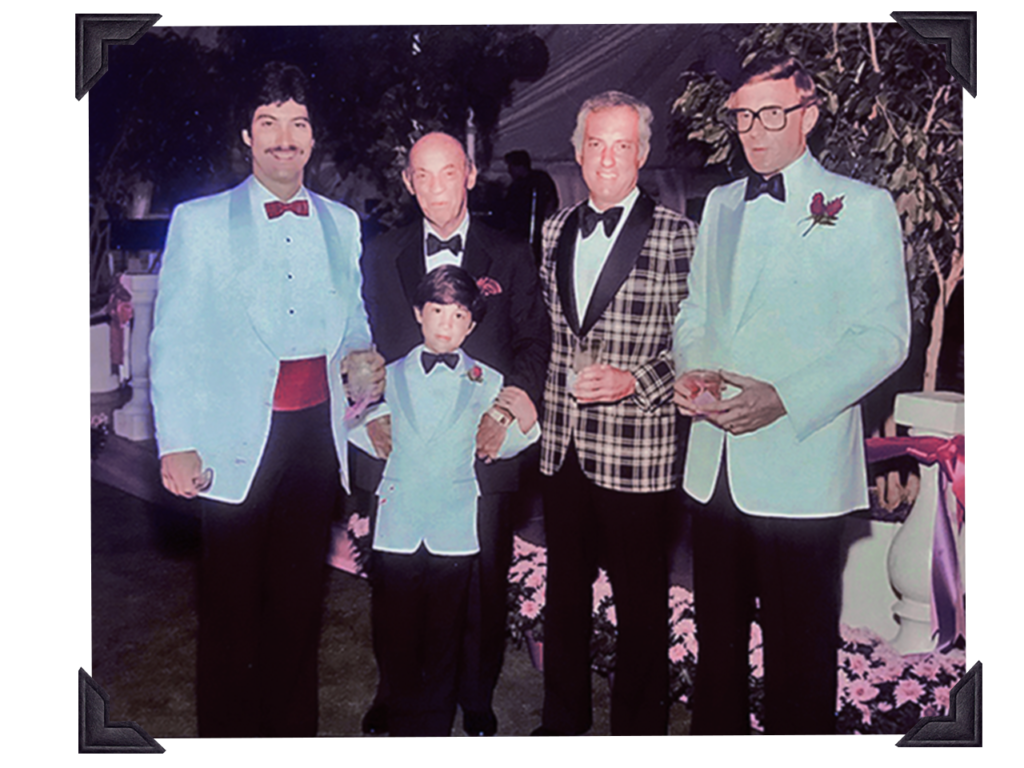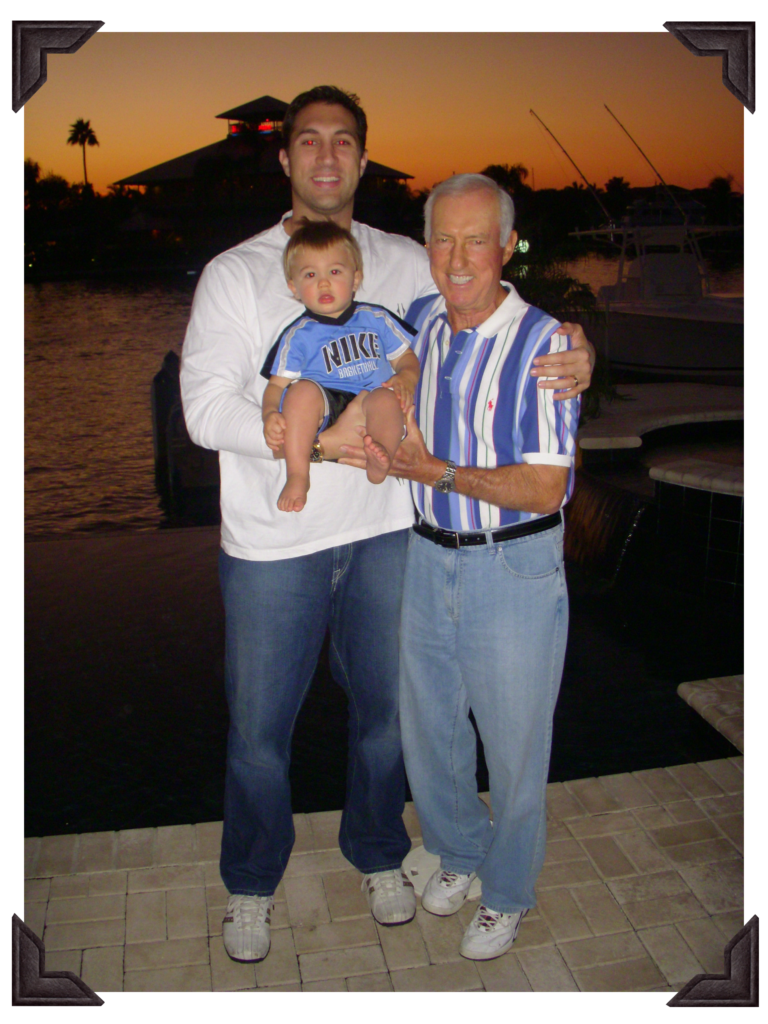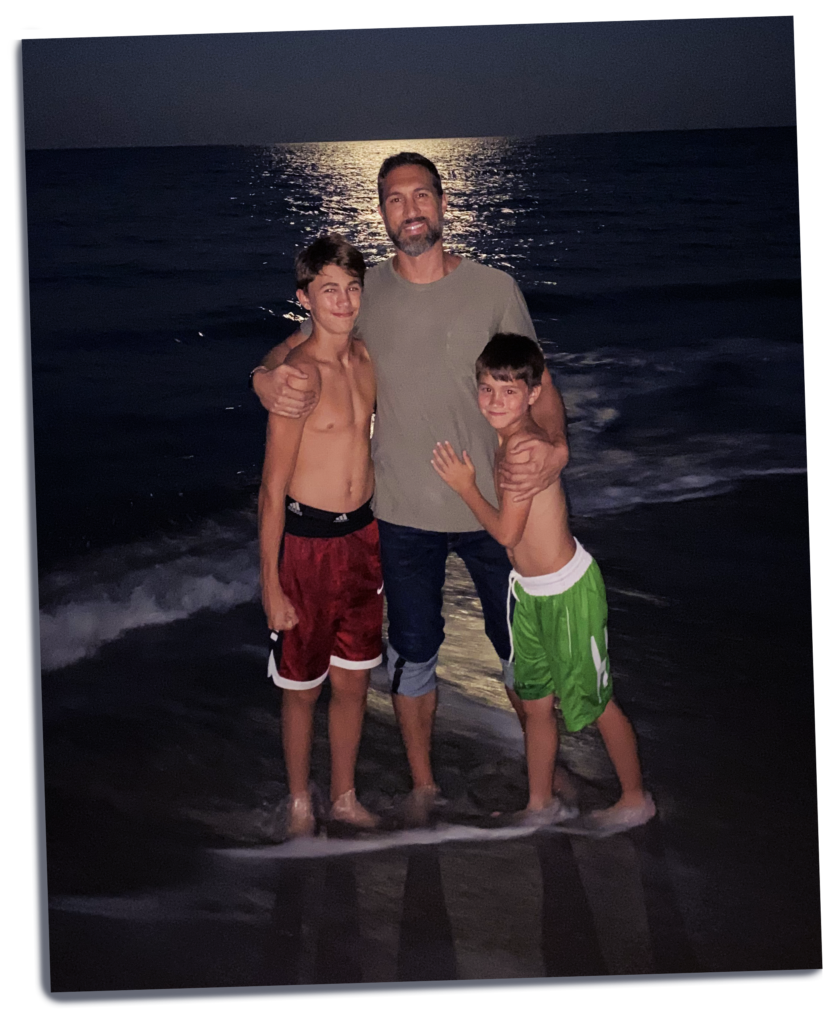Growing up in Ohio, vulnerable displays of emotion weren’t a part of my household culture. The men in my family did not get overly emotional, as far as I knew. Neither did I. I truly believe that the acceptance of the more vulnerable side of men’s feelings correlates directly to the culture of the area you live in. In Ohio, it wasn’t something that was openly scorned, but it wasn’t exactly a common practice either.
Back then, general displays of emotion, especially crying, were what I presumed to be a private moment to be kept behind closed doors. I naturally adopted this idea without instruction. Emotions weren’t a bad thing, just a private thing, to be saved for when you were in your own company, unsuspected by others. Only then, could you feel them in their entirety.
Emotions weren’t a bad thing, just a private thing
I never saw my father cry, neither of my grandfathers cry, nor did I ever see my male friends cry. Even now, as an adult, these notions still ring true. As a high school youth, I never told my girlfriend that I loved her. I didn’t go out of my way to tell her she was pretty. It sounds harsh but it’s not like I did this on purpose. It simply didn’t occur to me to be that open with how I felt, to let her know how infatuated I was with her. This was how I was with most people and things I was interested in. They knew that I cared, but they might not have known the extent.

Despite that, I still think I had a pretty firm awareness of my emotions, even if I didn’t always show it. I felt what I needed to feel, when I needed to feel it but, with the subconscious influence of the men around me, I didn’t overdo it at any point. I did not whine, I did not succumb to my fears. I was composed around others, as I thought I should be.
I remember vividly the first time when it felt like I’d lost my emotional control. My grandfather was dying. I idolized him, even though his sickness was slowly overcoming him, even though I was well into adulthood. Knowing our time together was growing limited, we were spending as much time together as possible. During one of those moments, I was at his house. He was facing me as I was idling on his computer. We were discussing life and generally keeping each other company, as we had done for most of my life.
I felt what I needed to feel, but I didn’t overdo it. I was composed around others as I thought I should be.
Physically, his sickness had already begun to take over, and it showed in his weariness, in his reluctance to get up and his relief upon sitting down. I looked up from the computer, and he looked as if he was taking a deep breath. His eyes were lowering and, upon exhale, it felt as if I were seeing his life force slowly leaving his shuddering body. He did not die at that moment (he would not until a few weeks later), but the finality of it rushed through me, the sudden awareness of my impending loss. He had only drifted off but I still believe that, at that moment, a mass of his remaining energy had been quickly sapped out of him, continuing to drain out with each breath.
I was gutted. His head was resting against the wall, barely awake but not lucid enough to continue the conversation, much less properly take in his surroundings. I looked at him, really looked at him, and I began to weep. Gasping, breathtaking sobs, at the sight of my best friend, my hero, who was sitting less than an arm’s length away, unaware of the tears melting against his grandson’s face.

I’m not a stoic person by nature. There had been moments, growing from a child to a young man, where I felt sad enough to shed a few tears, where I felt pained or stressed or hurt. However, that time with my grandfather pierced a part of me, and it hurt. I would weep for him again when he was in hospice, with only a day left to live. That was the first crack in the armor that I didn’t realize I had been wearing.
The armor would not last much longer.
When I was going through my divorce, it was a debilitating affair. Some couples harbor resentment that builds over the course of many years that leave them bitter towards each other til the final end. For me, I was completely blindsided. I was left in a whirlwind of confusion, betrayal, and immense hurt that left me struggling to find my footing. Divorce is hard, anybody who’s been through it can tell you that. There were times when I felt disconnected from my body, waking and simply going through the motions. There were times I felt too numb to move or even commit to a deep thought. Without question, I shed my fair share of private tears.
What I didn’t expect was how the whole ordeal would physically change me. A part of my soul was left mangled and irreparable, but not necessarily for the worse. It opened up a new way of viewing the world for me but this time through the lens of heightened empathy. I felt an overwhelming sense of clarity when it came to my perception of myself as a human being. I began to see the inherent humanity that came with the act of living.
I felt an overwhelming sense of clarity. I began to see the inherent humanity that came with the act of living.
Now, the armor is gone. Now, not only do I cry more often than I thought I ever would, but it surprises me every time. It’s not as if I’ve suddenly turned into a sensitive guy who weeps at Lifetime movies, someone who sobs at any inconvenience or can be caught screaming at the sky. I still get acutely uncomfortable at the thought of just anybody seeing me cry. Even writing this post makes me feel a niggling sense of discomfort. I still find solace in letting my emotions come to me in the privacy of my mind, in my own company. But now, the sensation of tears behind my eyes is a more frequent part of my life.
If my kids look over at me during a moving episode of “Wonder Years”, they might see a few silent tears roll down my face. If I were to see a particularly affecting piece of news, the silent tears would fall once again. At first, I hated it. I felt it was a show of weakness, a flaw in my character. I found it frustrating. Most of the frustration stemmed from my fear of others taking notice, of potentially being judged by those around me, of the ones I love doubting my strength or my character.
I felt my tears were a show of weakness, a flaw in my character.
When should men be allowed to cry? At what point are the tears “valid”? It may take years for me to fully understand the deep-set emotional trigger for my tears. I wouldn’t advocate crying at the slightest provocation, nor am I trying to say that there’s something essentially wrong with men who choose to harbor their tears more often than not. I still prefer to cry in private, too.
But internalizing your issues, living in fear of being mocked, or surrendering to insufficient coping methods is simply doing yourself a disservice. Emotion is a spectrum, one that every human, man or woman, should be allowed to feel. I think men are fundamentally wrong when they decide that showing emotion shouldn’t be allowed unless it’s for a socially acceptable reason. It doesn’t achieve what you want nor does it achieve what you think it will.
Emotion is a spectrum, one that every human, man or woman, should be allowed to feel.
This opens up a bigger conversation for us. If you’ve upset your friend, he should be allowed to talk to you about it without indignation. If your son hits his first home run after weeks of gruelling practice, you should be allowed to praise him with unabashed affection. If you love someone, if you care about someone, there shouldn’t be a need to minimize it or compartmentalize it. If anything, choosing to live openly will strengthen the relationship you have with those who are supposed to be in your life. Don’t get me wrong, you should still make the effort to be realistic and objective about your emotions. There’s no need to overdo it or force it.
That being said, being vulnerable is hard. I don’t even think that I’m necessarily good at being vulnerable either. I hate the idea of people pitying me or misinterpreting me. I always have. But now, looking around at where I am in my life, I wouldn’t say I’m better at being vulnerable, or that I embrace my tears with welcoming arms. I will say, though, that being vulnerable has strengthened my sense of humanity, perhaps even my sense of self, and I’d like to think I’m better for it.

“It’s alright to cry
Even my dad does sometimes
So don’t wipe your eyes
Tears remind you you’re alive”
Like the songs you hear on King’s Passage? Then check out the KP Jukebox playlist on Spotify


